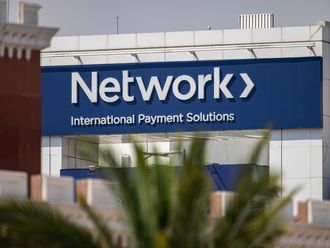Dubai: The Dubai International Financial Centre (DIFC) will invest around Dh500 million in developing new physical infrastructure during the current year.
While Dh150 million will be invested this year in the development of Gate Village 11 project, Dh300 to Dh350 million will be invested in the DIFC Spine project that will link all DIFC infrastructure developments.
In July last year, the Gate Building 11 project broke ground. Due for completion by end of 2017, the Dh205 million, 200,000 square foot building will house the DIFC’s fifth business centre, as well as 160,000 square feet of office space and 40,000 square feet dedicated to retail and F&B outlets.
DIFC officials said the new projects will be funded from the accrued cash reserves.
The DIFC has no plans to raise funds in the immediate future.
‘Strong position’
“As far is our finance is concerned, we are in an extremely strong position after issuing our own sukuk. We have a strong cash position in excess of $368 million (Dh1.35 billion). Our EBIDTA [earnings before interest, depreciation, taxation and amortisation] is still in line with our expectations and ranging from $120 million to $150 million,” said Eisa Kazim, Governor of the Dubai International Financial Centre.
Officials said the DIFC is working closely with telecommunication service providers to bring down transaction costs.
The DIFC signed a Memorandum of Understanding (MoU) with telecommunications service provider du, offering preferential pricing to clients and savings of up to 50 per cent on Global Connectivity and Ethernet services. The move aims to build an advanced infrastructure that offers efficient, value-added and streamlined services for tenants and residents.
On technology front, in line with Dubai’s Smart City initiative, the DIFC launched a fully-integrated client portal in 2015, offering registered entities a range of administrative services, including employee services, registration and licensing, certification and an online payment facility.
Kazim said the opening of Abu Dhabi Global Markets is complementary to what the DIFC is doing towards the diversification of the UAE’s economy.
“When we launched DIFC in 2004, the contribution of Dubai’s financial sector to the total GDP stood approximately at 5.5 per cent. Today, it is exceeding 12 per cent. That demonstrates the importance of the financial services sector in supporting the diversification of UAE’s economy. Our critical mass and cluster within the financial services sector will generate employment in the high-end — it is a high value-add,” he said.
Fact box: Key numbers
• 1,445 total registered companies; the highest number since DIFC’s inception
• 309 incorporated companies in 2015; the highest number registered within a year
• 40 per cent of DIFC’s 2024 strategy workforce growth target already achieved
• 19 per cent increase in new office space leased










